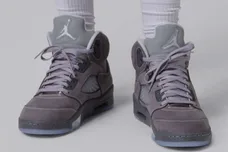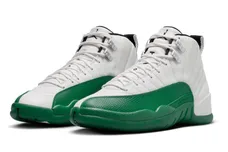Elliott Wilson is a veteran of hip-hop journalism. The current generation may know him best for his Car Test series with Tidal, but he’s been in the game since the 1990s. Elliott stands as a journalist that’s committed to the culture. He served as the Editor-in-Chief of XXL and later branched out and created his own platform, Rap Radar. His Rap Radar Podcast interviews, which he does with Brian "B.Dot" Miller, often go viral due to the hot takes of the interviewees that cause conversations among fans. Interestingly enough, Elliott Wilson had some thoughts on the recent interviews Drake has been doing. Drizzy fired back, saying Wilson just doesn’t understand how the culture has moved on from traditional interviews.
Elliott Wilson’s Journalism Origins

Elliott Wilson’s journalism journey started during his time at LaGuardia Community College. He graduated in 1992 with an associate’s degree in Liberal Arts. Around this time, he wrote for Beat-Down Newspaper, which is credited as the first hip-hop publication founded in New York. He later became their music editor. This newspaper transformed into Ego Trip (stylized “ego trip”), which was a magazine founded by Wilson, Haji Akhigbade, Sacha Jenkins, and Jefferson "Chairman" Mao. The magazine focused on hip-hop culture and the niche worlds of skateboarding and the punk scene. It published its first issue in 1994 and its last in 1998. However, by 1996, Wilson had become the hip-hop editor of the College Music Journal. That same year, he also earned the title of editor of The Source. He later left The Source after they reportedly tampered with his reviews.
Wilson Had One Goal At XXL

Elliott Wilson became the Editor-In-Chief of XXL magazine in 1999, launched their websites in 2005, and was fired by them in 2008. This moment was shocking and memorable for many. Reports said Wilson was escorted out of the building by security. While at XXL, one of his primary goals was to have the magazine outperform The Source. In his interview with Bevel, he spoke about how he prioritized numbers and sales. Also, during his time at XXL, he would write editorials under the name “YN” which stood for “Young N***a,” a name he came up with that represented his background and determination to be a voice in the culture. “To me, YN is someone who is very passionate and a great journalist that really loves hip-hop culture,” he also told Bevel.
Elliott Wilson Was Fired By XXL
In 2008, XXL fired Wilson, reportedly because they noticed the print numbers were going down. In his interview with Noah Callahan-Bever for Complex’s Blueprint series, Wilson shared he figured they could cut costs by letting him go. However, they would continue to use his techniques since they already brought them success. Further, he questioned if his individual popularity was overshadowing the brand, and it may have overshadowed the magazine. Without having a home there or at ego trip, he was inspired by Paul Rosenberg to start Rap Radar so his voice could remain prominent in the culture. He approached Rap Radar with the mindset of outdoing the other blogs in the culture. With co-founder Brian “B.Dot” Miller, Rap Radar caused Wilson to be more hands-on with everything he did for the platform.
Wilson Jumped To Tidal To Keep Up With The Streaming Era

Elliott Wilson has been in music journalism for decades and has seen it transform in real-time. He saw what TIDAL was doing with the streaming world and thought he could be a part of it. He transitioned from print to the internet and knew it was time to get into what was coming next. By personally reaching out to Jay-Z, he was given the title of their Editorial Director of Culture & Content. He hosted the CRWN series, which showcased live interviews with the biggest names in the culture. These interviews were unique because they took place in front of a live audience. After the series ended, he began co-hosting the Rap Radar Podcast with Brian “B.Dot” Miller.
A Product Of His Generation
Elliott Wilson is a key part of the culture. He’s been in the game for some time and is still active. He has been a part of the rise of publications made by and for the culture and has also seen those that miss the mark. His issues with Drake stem from the mindset he’s built over the years. Elliott comes from a world where an interview is between two people sitting and talking. On his platforms, humor is not a core aspect, yet music and culture are. In reference to Drake focusing on humor-based platforms, Elliott said he was “...clowning the comedy shenanigans with outsiders to our culture.” Still, Elliott Wilson remains a core figure in the development of hip-hop media journalism.









